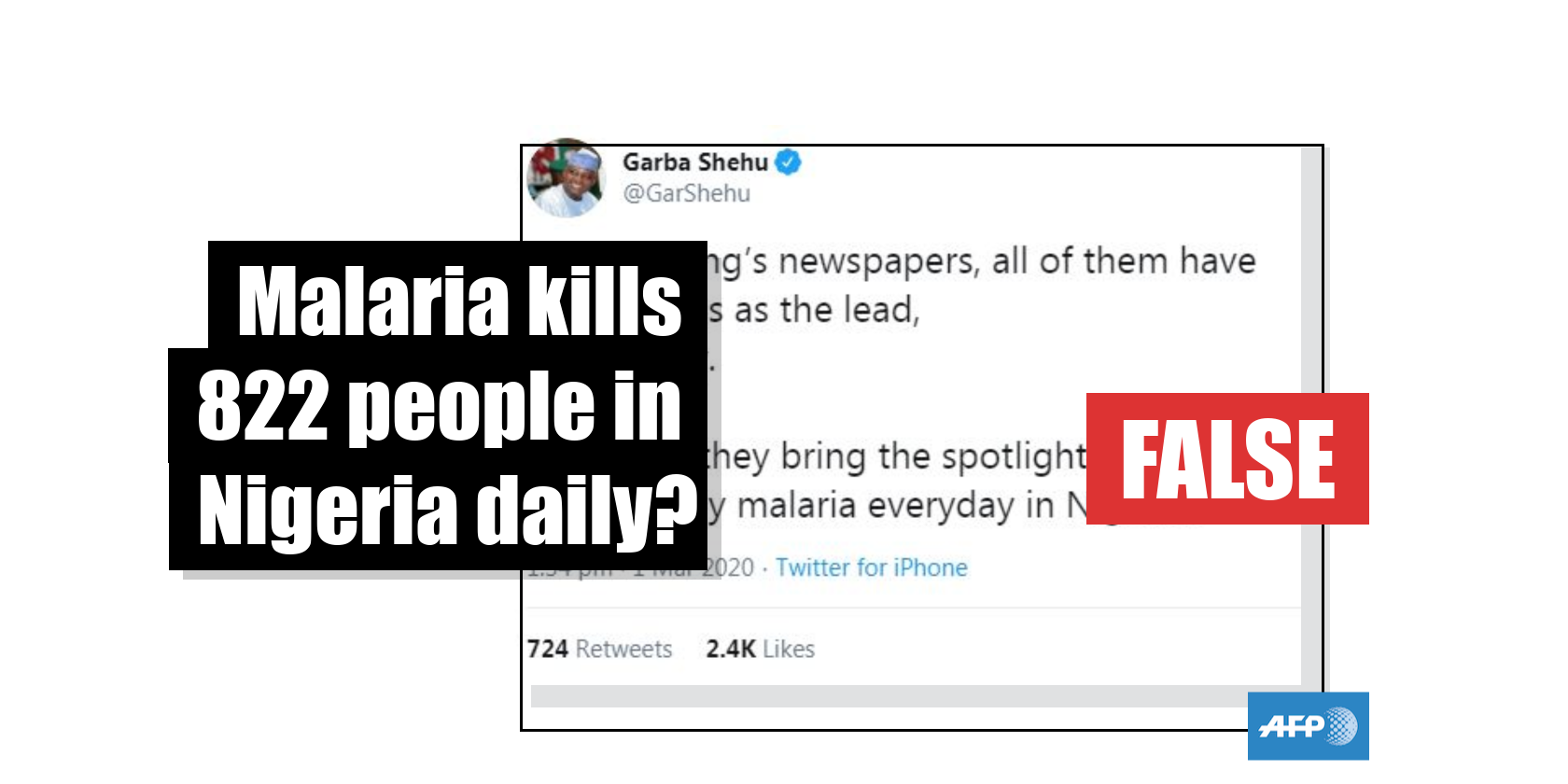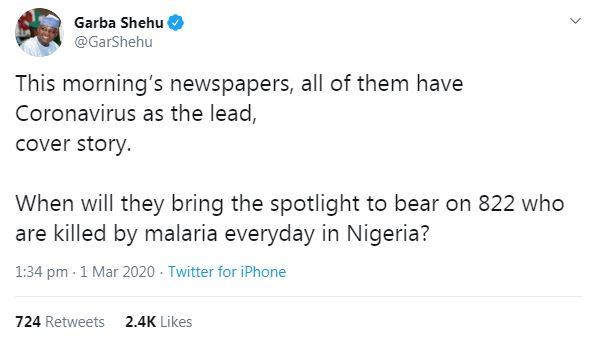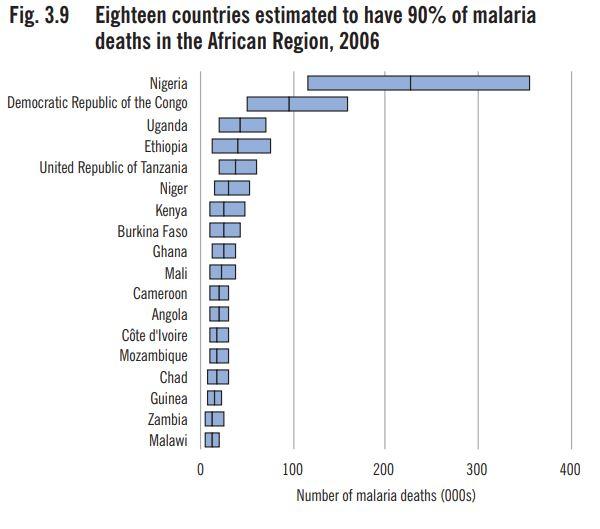
Presidential spokesman's claim that malaria kills 822 Nigerians every day reflects estimates that are more than a decade old
- This article is more than five years old.
- Published on March 5, 2020 at 16:00
- 1 min read
- By AFP Nigeria, Mayowa TIJANI
After Nigeria confirmed its first case of novel coronavirus on February 28, 2020, all major newspapers in the country led with reports on the virus.
In response, Garba Shehu, special media adviser to President Muhammadu Buhari, asked on March 1, 2020 when the spotlight would shift to the 822 people “killed by malaria everyday in Nigeria [sic]”.

What do the statistics say?
WHO estimated in its World Malaria Report 2019 that 405,000 people died from malaria globally in 2018, adding that Nigeria accounted for the majority -- nearly 24% of the total or 97,200 deaths.
The report also noted a continuing decline in malarial deaths “from about 400,000 in 2010 to about 260,000 in 2018” in 11 high-burden to high-impact (HBHI) countries, including Nigeria.
In the same period, Nigeria’s death toll fell by about a third.
Has malaria ever killed 822 per day in Nigeria?

For Nigeria to record 822 deaths from malaria every day, means 300,030 deaths in total a year -- two-thirds more than the most recent official figures
In 2009, the World Bank stated that more than 1,000,000 people died from malaria every year, including “more than 300,000 Nigerians” -- the last time the country had more than 300,000 estimated malaria deaths since the inception of WHOs comprehensive World Malaria Report in 2005.
The presidential spokesman's claim is therefore false.
Copyright © AFP 2017-2026. Any commercial use of this content requires a subscription. Click here to find out more.
Is there content that you would like AFP to fact-check? Get in touch.
Contact us
